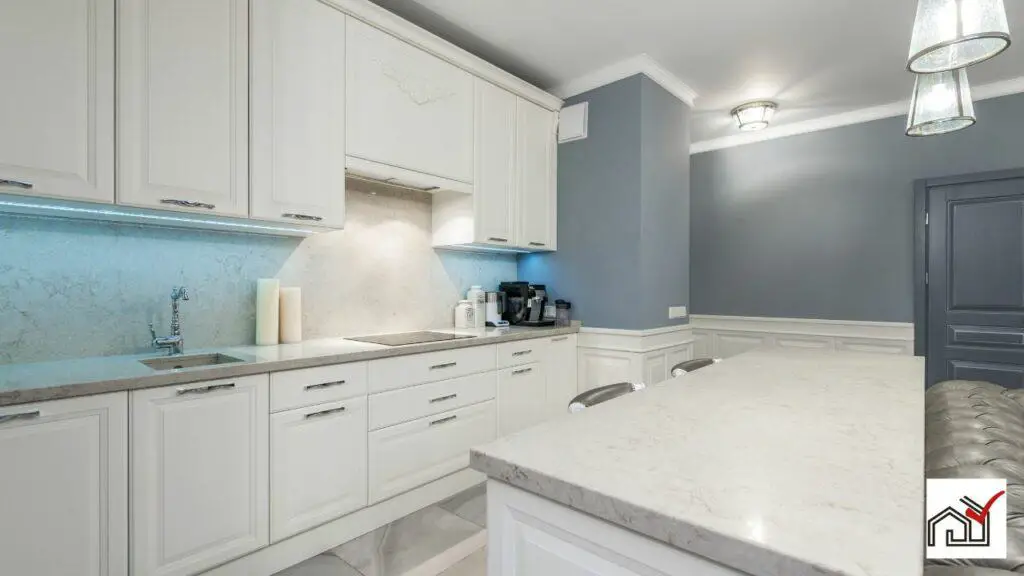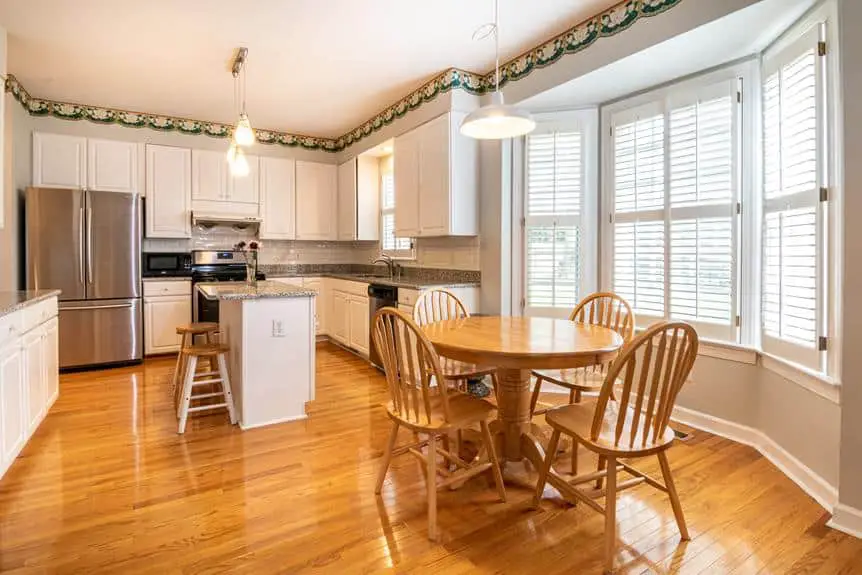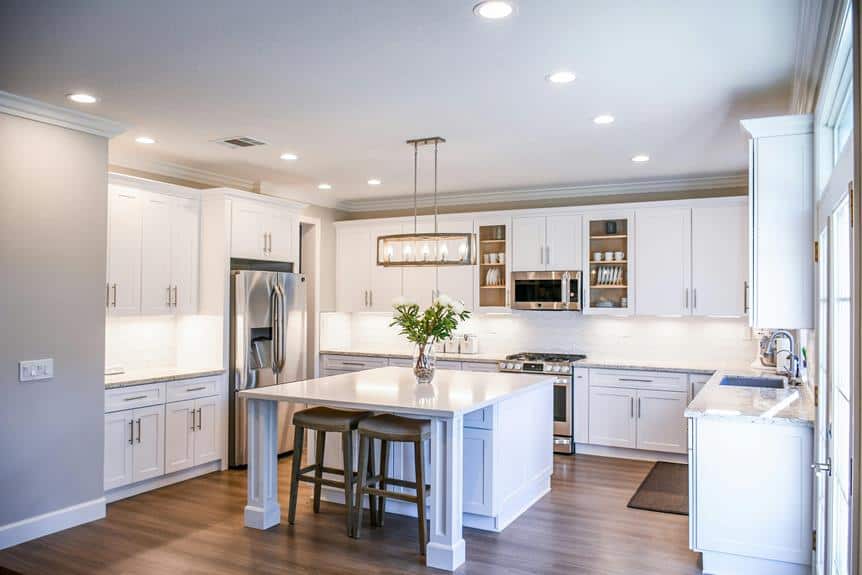Marble countertops are valued for their aesthetic appeal. However, their durability can be a concern. Marble is strong but porous, making it prone to stains and etching without proper sealing and maintenance. It can also scratch easily.
Regular maintenance and careful use are necessary to maintain the durability of marble countertops. This text will explore the factors influencing marble’s durability to provide a clear understanding for those considering it for their home.
Assessing Marble’s Porosity
Assessing the porosity of marble is important for its use as a countertop material. Marble has small spaces that allow liquids and air to pass through, affecting its durability. The porosity can enhance its appearance but also makes it prone to stains and damage without proper sealing.
Marble’s porosity varies by type and finish. A honed finish, which is matte, can increase the visibility of pores compared to a polished finish, which can offer more protection against stains.
Sealing marble provides a protective barrier but does not prevent all damage. It is important to reseal marble regularly, usually every six months, to maintain its resistance to liquids and stains.
When choosing marble for countertops, it is necessary to consider its porosity and the need for regular maintenance to ensure its longevity and visual appeal.
Understanding Scratch Resistance
Marble is less scratch-resistant than harder stones like granite, making it a less durable option for countertops. This softness is because marble mainly consists of calcite, which has a low hardness rating on the Mohs scale. When marble comes into contact with acidic substances, such as lemon juice, it can sustain etch marks, which are a combination of scratches and chemical damage that affect the polished surface.
To reduce the visibility of scratches, a honed finish, which is matte, can be more effective than a polished surface. Also, using cutting boards can protect the marble from sharp objects. Owners should be cautious with items like belts and metal necklaces that might scratch the marble if they come into contact with the surface.
Evaluating Long-Term Maintenance
Long-term maintenance of marble countertops is essential due to their susceptibility to scratches and etching. To protect marble, it is necessary to seal it regularly, about twice a year, to prevent stains and surface damage. This increases the countertop’s longevity.
Immediate cleaning of spills, especially acidic ones, is crucial to prevent etching, which can permanently dull and damage the marble’s surface. To avoid etching, it’s important to quickly remove acidic substances to maintain the stone’s polished look.
Marble is softer than some other natural stones, so it scratches more easily. To minimize scratching, always use cutting boards and coasters on marble surfaces.
Maintaining marble countertops requires diligent care. With proper maintenance, including a strict schedule of sealing and immediate attention to spills and potential scratches, marble’s natural beauty can be preserved for the long term. It is the owner’s responsibility to ensure these maintenance practices are followed.
Analyzing Cost-Effectiveness
Assessing the cost-effectiveness of marble countertops involves considering both their longevity and maintenance needs. Marble, like Carrara, is durable and has a classic look, often making its higher upfront cost worthwhile. Carrara marble is less expensive than other natural stones and can enhance a space’s look, which may increase its value over time.
The price of marble also depends on its rarity and appearance. For example, Calacatta marble is pricier due to its unique patterns and scarcity, but it can also boost a home’s resale value, thus being cost-effective in the long term.
It’s important to recognize marble’s properties when evaluating its value. Identifying natural surface fissures, which add character, from actual cracks, indicating damage, is essential for the upkeep and cost management of the countertops. Choosing the right marble and caring for it properly can reduce future costs and maintain its value.
Services like those from Washington Marble Work, which offer free estimates and consultations, help homeowners make cost-effective decisions. Their commitment to quality service allows customers to find a balance between their budget and quality, affecting the overall cost-effectiveness of marble countertops.
Exploring Heat Resilience
Marble countertops are valued for their beauty and positive effect on home value, but they require attention to heat resistance. Marble can handle moderate heat, making it a good choice for kitchens. However, it can be damaged by high heat, resulting in discoloration or burn marks.
To protect marble countertops from heat damage, use pot holders or trivets. This prevents thermal shock and extends the countertop’s lifespan. Careful maintenance ensures the durability and appearance of marble surfaces in the home.





